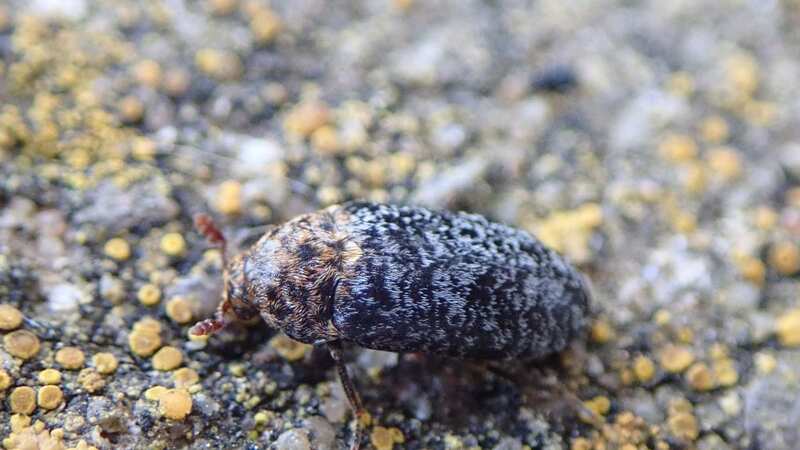Warning as rare 'skin-eating' creature found after three-year absence on coast

Brits are being warned over a rare species of flesh-eating insect found on UK shores.
The Dermestes Undulatus beetle was discovered on an island in the Bristol Channel. Previously, the creepy-crawly hasn't been seen since 2020 and it's thought the latest discovery is one of the last stronghold of the species.
The tiny beetles feed on the skin, fur and bones of dead animals, Somerset Live reports, and have even been used by forensic detectives to see how long a body has been dead. The most recent discovery was made on Flat Holm Island in the Channel and are believed to have been carried there by seagulls bringing carrion, although National Biodiversity Network records show the bugs have previously been found around the East Anglia coast.
Sarah Morgan, a community engagement officer for Flat Holm Island, said: "It's not for the squeamish, but these tiny beetles feed on the skin, fur and bones of dead animals - Dermestes literally means skin eater. It's a preference that makes them a bit of a pain in museum collections, but incredibly useful in forensic science to help determine how long a body has been in situ.
 The flesh-eating bug was found on Flat Holm Island in the Bristol Channel, and is thought to have been carried there by seagulls (WALES NEWS SERVICE)
The flesh-eating bug was found on Flat Holm Island in the Bristol Channel, and is thought to have been carried there by seagulls (WALES NEWS SERVICE)"Exactly how the beetle made it out to the island is a bit of a mystery, given that they appear to be completely absent from the mainland now, but it's possible they were brought by gulls carrying scavenged remains." A team from the South East Wales Biodiversity Records Centre discovered the beetles' presence.
 Insect blamed for mystery rise in life-changing illness that alters eye colour
Insect blamed for mystery rise in life-changing illness that alters eye colour
It also found other rare species including a Scarlet Berry Truffle, microscopic cup fungi, tiny moths that live inside bracken stems, and a well-camouflaged Burnished Brass Moth. Dermestes beetles are not generally harmful to humans and will only eat dead material.
They were found in a 'bioblitz' of the island as part of the Flat Holm - A Walk Through Time project, funded by the National Lottery Heritage Fund. Flat Holm is a haven for nature and has bee friendly status. It is also home to a colony of protected lesser black-backed gulls, as well as slow worms and wild leeks.
The discovery comes amidst the ongoing bed bugs infestation in Paris which scientists fear may have arrived in the UK. The super-mutated bugs which have become resistant to insecticide have been wreaking havoc on the French capital's public transport network and now UK transport firms are said to be braced for them arriving here too.
Nicolas Roux de Bezieux said the bugs had been "harder than ever" to kill. He said: "Pest controllers have to return to kill them again because they survive the spray.” The parasites – whose bites cause painful itching – have sparked panic by infesting schools, trains and cinemas around Paris as it hosts visitors from all over the world during the Rugby World Cup tournament.
Read more similar news:
Comments:
comments powered by Disqus

































